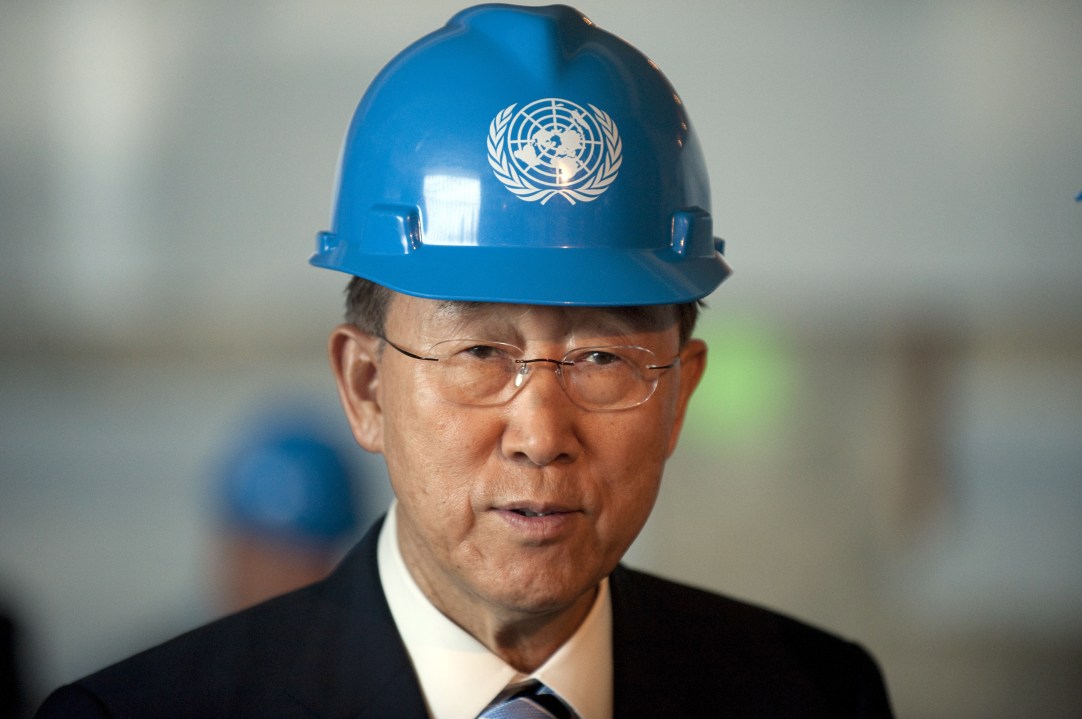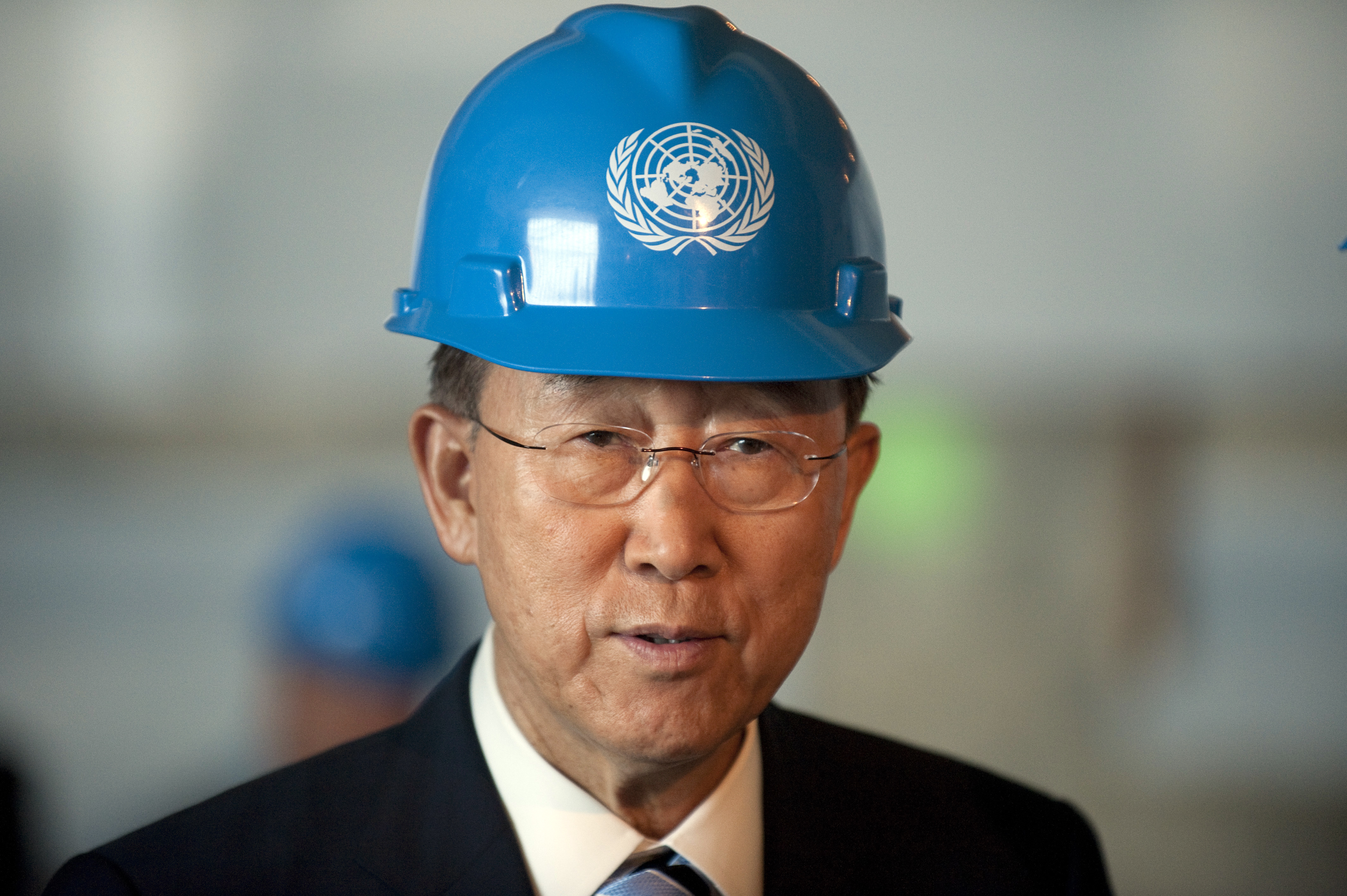 In the little compound known as “Bantanamo,” located outside the UN
headquarters in New York, a small sigh of relief was probably breathed last week. For, inside, UN Secretary-General Ban Ki-moon had just been told of the UN Security Council’s unanimous
decision recommending that he be elected for a second term. Gabon’s UN ambassador Nelson Messone made the announcement to the press after the 15-nation council met behind closed doors. The UN
General Assembly will probably vote this week, confirming that Ban will run the organisation until the end of 2016.
In the little compound known as “Bantanamo,” located outside the UN
headquarters in New York, a small sigh of relief was probably breathed last week. For, inside, UN Secretary-General Ban Ki-moon had just been told of the UN Security Council’s unanimous
decision recommending that he be elected for a second term. Gabon’s UN ambassador Nelson Messone made the announcement to the press after the 15-nation council met behind closed doors. The UN
General Assembly will probably vote this week, confirming that Ban will run the organisation until the end of 2016.
Earlier David Cameron had told the press that he was “glad” to support Ban Ki-moon’s candidacy for a second term, noting that the Korean diplomat had “championed and renewed the vital role of United Nations in tackling complex global challenges.” That’s a pretty low form of praise. To say the UN chief should continue in his post because he has “demonstrated a deep commitment to the goals of the United Nations,” is akin to saying that Carlo Ancelotti should have stayed as Chelsea manager because of his deep commitment to the game of football. The commitment is not in doubt; it is ability to deliver results that matter.
Most analysts have been more forthright about Ban, dispatching lacklustre reviews since he became UN chief in 2007. Criticised as an earnest but weak leader and an even worse manager, The Economist described Ban as a “an isolated figure, cut off by an inner circle of mostly Korean advisers.” Few senior managers in the UN have a good relationship with him. Writing in Foreign Policy magazine, Jacob Heilbrunn went as far as to say that Ban was “the world’s most dangerous Korean,” and has “set the standard for failure” among Secretary-Generals. That may have been over-the-top, but one has to go back to the days of Kurt Waldheim, the ex-Nazi UN chief, to find a less impressive Secretary General. For on the greatest issues of the day, Ban and the UN have either been absent or incapable of making a difference.
Early in his tenure, Ban made climate change a signature issue. In September 2007, he asked world leaders to join him at the UN headquarters for a climate change summit. But after the failure in Copenhagen, little has come of the UN’s efforts and a multi-country negotiation process under UN auspices is seen by most people as discredited. He also failed to UN-itise the world’s efforts at dealing with the financial crisis, seeing instead the G8 rejuvenated and the G20 created.
When issues forced themselves into his inbox, Ban has done his best to duck and swerve. He told The Guardian that the promotion of human rights was one of his “successes”. But when a UN Panel of Experts showed evidence of violations of international humanitarian and human rights law in Sri Lanka’s war against the Tamils, Ban said he could not launch an independent inquiry. His conciliatory style is seen by human rights groups not so much as quiet yet effective diplomacy, but as appeasement.
Not everything is bad, of course. His softly-softly style is sometimes better than Kofi Annan’s second-term megaphone diplomacy. In the last six months, Ban has also sought to put the UN on the right side of history during the Arab Spring — backing protestors in Tunisia, Egypt and Syria. His efforts at ensuring better maternal health services in the developing world is commendable. But the list of achievements is embarrassingly short.
In the end, it was easier for the UN Security Council, including David Cameron, to back Ban Ki-moon than have a global fight over the choice of a successor. And so, a man who has garnered mostly lacklustre reviews, will likely stay in his post beyond the next British election. The consequences for the UN could be dire.







Comments